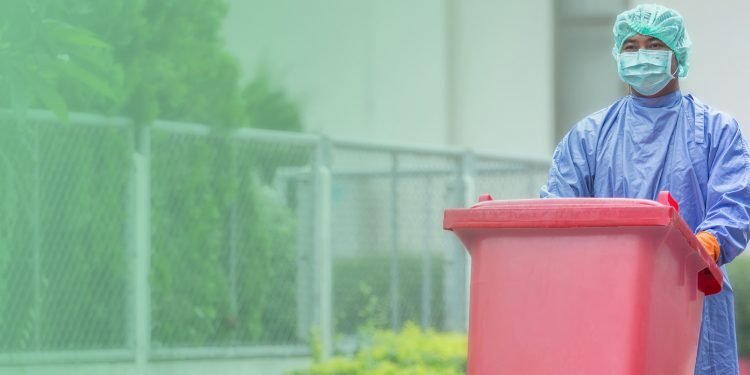According to the World Health Organization, out of the total volume of waste generated in the healthcare sector, nearly 85% is non-hazardous and general waste. The remaining amount of 15% is considered to be hazardous in nature and might be radioactive, toxic, or infectious. Annually, there are an estimated 16 billion people administered injections across the globe. However, not all of these syringes/needles are disposed of properly after the procedure.
Hospital waste management must be administered correctly
Hospital waste management should be administered by facilities correctly because open incineration and burning of these healthcare wastes might, under specific circumstances, emit furans, dioxins, and particulate matter into the atmosphere. Therefore, measures must be taken by authorities to ensure the safe and sound management of this waste so that adverse environmental and health impacts on the community through them can be avoided. Examples of the ohazard caused by them include microorganisms that are resistant to drugs being released into the air threatening the lives of people and animals in the community.
The objective of healthcare services and activities
One should note that the objective of any healthcare service or activity is to protect, save, and restore life. However, when it comes to the waste materials and the by-products generated by them, only companies that deal with medical waste management should be contacted to manage and dispose of them effectively.
What are the risks associated with hospital waste?
Licensed companies must manage hospital waste professionally, or else it might cause sharps-related injuries to people and animals in the community.
One of the primary causes of the rise of infectious diseases in the community is the improper disposal of hospital waste. Body secretions, body fluids, and blood originating from medical waste carry with their viruses, bacteria, and other parasites that are of high threat to public health. This waste passes through the hands of many people, and they cause infections in animals and humans if not correctly disposed of. Pathogens in medical waste are the cause of diseases like fungal infections, HIV, Bacteremia, lung infections, and others.
How should you dispose of hospital waste correctly?
Hospitals should contact esteemed and licensed companies that deal with medical waste management as per the state protocols and regulations of local authorities. These companies focus on working with clinical staff and the hospital inside the customer facilities. The team of these companies has the requisite training when it comes to the placement of hospital waste containers and the improvement of the waste management process on the premise.
Esteemed companies that specialize in effective hospital waste management in the community influence safety, enhance efficiencies, change waste segregation behaviors, and trigger substantial cost-saving benefits to their customers. If you are in charge of a hospital, it is your moral and ethical responsibility to keep your staff, patients, visitors, and animals in the community safe from infections, diseases, or sharps injuries generated by improper hospital waste disposal methods.
Relying on a credible, licensed, and professional hospital waste disposal and management company should always be a top priority keeping public health and the environment in mind!






















































